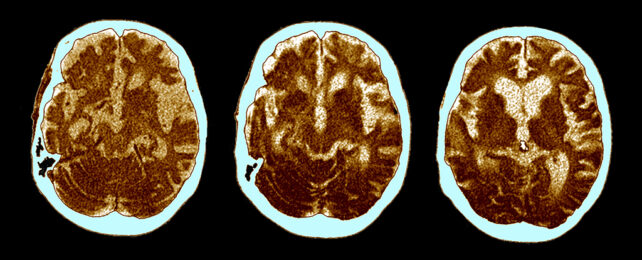Alzheimer's disease is commonly associated with clumps and tangles of proteins building up in brain cells. Yet for more than a century, accumulations of a completely different material have also been linked with the neurodegenerative condition.
A study led by researchers from the Stanford University School of Medicine returned to observations of large fat drops made by Alois Alzheimer when he made critical descriptions of the pathology at the turn of the 20th century.
Over the years, those lipid deposits haven't received as much attention as other biological changes linked to Alzheimer's – such as the bundles of amyloid beta and tau proteins in the brains of people with the disease. The new study was looking to change that.
Scientists already know that variations in a gene which produces a fat-transporting protein is an important risk factor for Alzheimer's. Different forms of the protein, called for apolipoprotein E (APOE), have varying efficiencies in their ability to move fat in and out of cells.
Here, the researchers took a closer look at different types of APOE in cells synthesized in the lab and in tissue samples from people who had died with Alzheimer's.
They were wanting to see how the four variants of APOE – named, conveniently enough, APOE1 to APOE4 – changed the risk of developing Alzheimer's. They noticed that the APOE4 gene was linked to a higher level of a particular enzyme, which in turn helped fat move around more easily.
In another experiment, when amyloid was added to samples of tissue from people with the APOE3 or APOE4 gene variants, non-neuronal brain cells called glia accumulated more fat. The researchers think this might be what's happening with Alzheimer's, with neurons accumulating the toxic materials building up in the supporting glial cells.
A lot more careful study is going to be needed to find out for sure what's happening, but it does give us another route to explore when it comes to developing treatments. Might there be some way of stopping the flow and build up of fat inside the brain cells?
Every new piece of research that gets published gives us more information about Alzheimer's, the mechanisms behind it, and the way it develops. One recent study looked at the way the disease might trick the immune system, for example.
Of course, the rest of our bodies are intrinsically connected to the brain, and scientists have also expanded their search for answers to the mouth and the gut. Slowly but surely, we're working our way to some effective treatments.
The research has been published in Nature.
